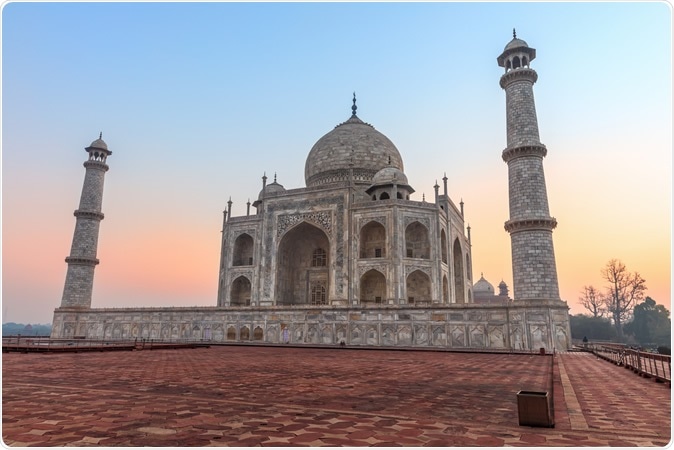As the world is gripped with COVID-19 infection and fears of transmission, Southeast Asian nation India, being China’s neighbor and the second most populous nation (with 1.3 billion population) in the world, is not spared.
Cases of CoVID-19 infection have crossed 197,000 globally, and as of March 18, 2020, there have been 7,900 deaths due to the infection. In India today, the number of cases positive for the virus has touched 142 with three reported deaths due to the disease. Since March 11, 2020, when the World Health Organization (WHO) declared this infection a pandemic, India is working on a war footing to stop the spread of this infection.
Measures of control
Schools, universities, public gatherings, museums, gyms, cultural and social gatherings, entertainment facilities such as cinemas, malls, temples, and religious institutions, etc. have also been shut down to prevent disease spread. Monuments such as the Taj Mahal, Qutub Minar, and other places of interest have also been shut down for the public until the danger passes. The Government is working overtime to prevent the spread of the infection by isolating suspected cases, putting them and their contacts under quarantine and testing all suspected cases of COVID-19.

Taj Mahal now closed. Image Credit: Alex Anton / Shutterstock
Tourism Minister Prahlad Patel tweeted yesterday, March 16, 2020, “All ticketed monuments and all other museums have been directed to be closed until March 31.” India suspended all visas on March 11, and except diplomatic and employment visas, others were rejected.
All visits from tourists to India have been stopped temporarily to prevent the influx of the infection into the nation. Passengers from European Union, the European Free Trade Association, Turkey, and the United Kingdom would be prevented from alighting in India from March 18, 2020, in a bid to prevent infected persons from coming into the country. Those arriving from Qatar, UAE, Oman, and Kuwait have been put on mandatory fourteen days quarantine after coming into India, said government officials on March 16. Previously all incoming passengers from China, Italy, Iran, South Korea, France, Spain, and Germany have been mandated the quarantine period. International borders with Bhutan, Myanmar, and Bangladesh have also been shut off.
Impact on the Rupee
As a result of the global impact of the virus, the Rupee fell to a record low last week. To salvage the situation, the Reserve Bank of India has announced a foreign-currency exchange to allow an injection of $2 billion into the market.
Officials
The Indian Council of Medical Research (ICMR) has announced that the highest affected states of the country are Maharashtra, Kerala, and Karnataka. The latest cases were also reported from Odisha, Jammu & Kashmir, Ladakh this week. Many of the new cases have provided a travel history from the affected countries. Maharashtra alone has recorded 40 cases with one death due to the infection. Of those infected in India, 17 foreign residents or tourists are visiting India, say the ICMR officials.
To date, 13 people have been discharged, having recovered from the infection. The Union Ministry of Health and Family Welfare today have also released guidelines for using masks to protect oneself from the disease.
According to the Government of India group of ministers (GoM), social distancing measures need to be in place until March 31 for now before further decisions are taken. The health ministry officials have said in a statement which came from Lav Aggarwal, the Joint Secretary in the Ministry, “Travel of passengers from member countries of the European Union, the European Free Trade Association, Turkey and the United Kingdom to India is prohibited with effect from March 18, 2020.” He added, “No airline shall board a passenger from these nations to India with effect from 1200 GMT on March 18, 2020. The airline shall enforce this at the port of initial departure.” These measures, as of now, are in place until March 31, 2020, he said, after which they would be reconsidered.
These decisions came after the seventh meeting by the GoM on Monday, Aggarwal said. Students and employees are encouraged to stay at home. Employees would work from home, and students are encouraged to participate in online education he said. He added, “Non-essential travel should be avoided. Buses, trains, and airplanes should maximize social distancing in public transport, besides ensuring proper disinfection of services.”
Prime Minister Narendra Modi has lauded the efforts from the doctors, nurses, healthcare workers, and public officials in combating this pandemic. He tweeted, “Our doctors, nurses, healthcare workers are putting great efforts. They are out there, helping people. We will always cherish their contribution.”
The ICMR has said on its website that India becomes the fifth nation in the world to isolate the COVID-19 virus strain, which was successfully done by the ICMR’s National Institute of Virology. This is being used in the development of drugs and vaccines against the virus, says the organization. Japan, Thailand, the United States of America and China have isolated the virus and are working on it at present to help combat this pandemic.
Prof (Dr) Balram Bhargava, Secretary, Department of Health Research & Director General, ICMR, said in a statement, “People should not panic, but take precautionary measures. Strong systems and processes are in place to deal with COVID-19, and the Ministry is constantly monitoring the situation. We at ICMR have been constantly in a vigil mode, and our laboratories have enough capacity to test. We will be issuing advisories and revising guidelines for testing as and when necessary.” “In a query regarding ongoing paranoia about what to eat or not Eat, DG, ICMR said eating non-veg (chicken or eggs) is not related to COVID-19,” he said.